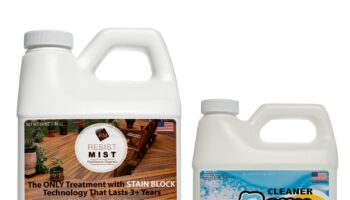When it comes to cleaning your home, you have the option to use DIY cleaning solutions or commercial products. Each has its own set of advantages and limitations, making it important to understand the differences before making a decision. This article explores the benefits and drawbacks of DIY and commercial cleaning solutions, helping you choose the best approach for your cleaning needs.
Benefits of DIY Cleaning Solutions
DIY cleaning solutions are made from common household ingredients like vinegar, baking soda, and lemon juice. They offer several benefits, including cost-effectiveness and customization. Creating your own cleaning solutions allows you to tailor them to your specific cleaning needs and preferences. Additionally, DIY solutions are often more environmentally friendly and can reduce your exposure to harsh chemicals.
Popular DIY Cleaning Recipes
- All-Purpose Cleaner: Mix equal parts water and white vinegar in a spray bottle. This solution is effective for cleaning countertops, windows, and floors.
- Glass Cleaner: Combine 1 cup of water, 1 cup of rubbing alcohol, and 1 tablespoon of vinegar. This mixture provides a streak-free shine for glass surfaces.
- Deodorizing Carpet Freshener: Sprinkle baking soda over carpets, let it sit for 15 minutes, and then vacuum. This helps neutralize odors and refresh carpets.
Limitations of DIY Cleaning Solutions
While DIY cleaning solutions are effective for many tasks, they may not match the performance of specialized commercial products. For tough stains or heavy-duty cleaning, commercial cleaners often provide superior results. Additionally, some DIY solutions may lack disinfecting properties, which are essential for killing germs and bacteria.
Benefits of Commercial Cleaning Solutions
Commercial cleaning solutions are formulated to tackle specific cleaning challenges with targeted ingredients and advanced technology. They offer higher efficacy and convenience compared to DIY solutions. For instance, commercial disinfectants are designed to kill a broad spectrum of pathogens, ensuring a higher level of sanitation. Additionally, commercial products often have specialized formulations for particular surfaces or cleaning tasks.
Choosing the Right Commercial Cleaning Solution
- Read Labels and Ingredients: Look for products that specify their intended use and effectiveness. Check for any certifications or approvals from regulatory agencies, such as the EPA, to ensure the product meets safety and performance standards.
- Consider Your Needs: Choose products based on your specific cleaning requirements, such as degreasers for kitchens or disinfectants for bathrooms. Matching the product to your needs will enhance cleaning efficiency.
- Evaluate Environmental Impact: Many commercial cleaning products are available in eco-friendly versions. Look for options that use biodegradable ingredients and come in recyclable packaging to minimize environmental impact.
Cost Considerations
While commercial cleaning solutions may have a higher upfront cost compared to DIY solutions, they often provide superior performance and longer-lasting results. Consider the overall value, including effectiveness and convenience, when evaluating the cost of commercial products.
Comparing DIY and Commercial Cleaning Solutions
Commercial cleaning solutions generally offer higher efficacy for specialized cleaning tasks and heavy-duty jobs. DIY solutions are effective for general cleaning but may not always meet the performance needs for tougher stains or extensive cleaning requirements.
Safety and Environmental Impact
DIY cleaning solutions often use natural ingredients, which can be safer for individuals with allergies or sensitivities. They also tend to be more environmentally friendly. However, commercial products are available in eco-friendly options and offer safety information and performance guarantees.
Cost and Convenience
DIY solutions are usually more cost-effective, as they use inexpensive household ingredients. However, commercial solutions provide convenience and specialized formulations that can save time and effort in cleaning.
Conclusion
Choosing between DIY and commercial cleaning solution depends on your specific needs, preferences, and budget. DIY solutions offer cost savings and customization, while commercial products provide specialized performance and convenience. By understanding the benefits and limitations of each, you can make an informed decision and ensure your cleaning tasks are handled effectively and efficiently.






